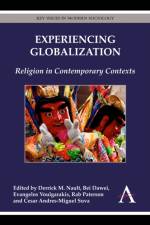- Towards Planetary Realizations
von Ananta Kumar Giri
61,00 - 138,00 €
Human liberation has become an epochal challenge in todays world, requiring not only emancipation from oppressive structures but also from the oppressive self. It is a multidimensional struggle and aspiration in which knowledge self, social and spiritual can play a transformative role. Knowledge and Human Liberation: Towards Planetary Realizations undertakes such a journey of transformation, and seeks to rethink knowledge vis--vis the familiar themes of human interest, critical theory, enlightenment, ethnography, democracy, pluralism, rationality, secularism and cosmopolitanism.Knowledge today is imprisoned not only in structures of domination but also in varieties of dualisms expert and the lay, cognitive and emotional and thus we are in need of a new art of cultivating non-duality and wholeness. The present book seeks to nurture the garden of liberatory and transformational knowledge by presenting alternative pathways gathered from many different global locations and traditions. Discussing diverse thinkers such as Sri Aurobindo, Jrgen Habermas, Erasmus, Kant, Tocqueville, Gandhi, Foucault, Daya Krishna, Ramachandra Gandhi and Martha Nussbaum, this text seeks to rethink some important themes in the contemporary discourse of knowledge, including: knowledge as power; knowledge as emancipatory interest; evolution; rationality; power; freedom; anthropology; history; law; compassion and confrontation; epistemology; ontology; political consumerism and responsible consumption; civil society and self-development; and rights.Offering a groundbreaking and interdisciplinary exploration of ideas about social transformation, Knowledge and Human Liberation bridges both Eastern and Western philosophy to create a definition of transformative knowledge that defies Eurocentric thinking. Via the discourses of sociology, philosophy, religion and spirituality, the text rethinks the relationship between knowledge production and ideas to offer a unique perspective on the issue of human liberation in todays oppressive world. The volume also features a Foreword by John Clammer (United Nations University, Tokyo) and an Afterword by Fred Dallmayr (University of Notre Dame).






























